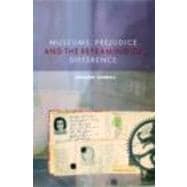
Note: Supplemental materials are not guaranteed with Rental or Used book purchases.
Purchase Benefits
Looking to rent a book? Rent Museums, Prejudice and the Reframing of Difference [ISBN: 9780415367493] for the semester, quarter, and short term or search our site for other textbooks by Sandell; Richard. Renting a textbook can save you up to 90% from the cost of buying.
| Museums and the Good Society | |
| On Prejudice | |
| Purpose, media and message: the St Mungo Museum of Religious Life and Art and the Anne Frank House | |
| The visitor-exhibition encounter: reconciling and rethinking museum-audience agency | |
| Museums and the Mediascape | |
| Displaying difference: revealing and interpreting the hidden history of disability | |
| (Re)Framing Conversations Appendices | |
| Investigating visitor responses: notes on methodology, research design and data sources | |
| Buried in the Footnotes: the representation of disabled people in museum and gallery collection | |
| Self-completion questionnaire to curators | |
| Bibliography | |
| Table of Contents provided by Publisher. All Rights Reserved. |
The New copy of this book will include any supplemental materials advertised. Please check the title of the book to determine if it should include any access cards, study guides, lab manuals, CDs, etc.
The Used, Rental and eBook copies of this book are not guaranteed to include any supplemental materials. Typically, only the book itself is included. This is true even if the title states it includes any access cards, study guides, lab manuals, CDs, etc.